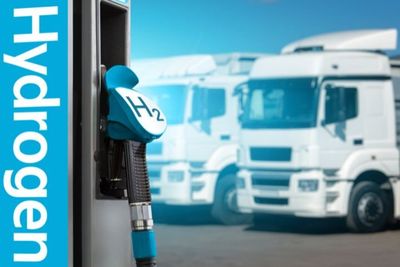hi, hydrogen
Houston research shows how much hydrogen-powered vehicles would cost at the pump

Researchers at the University of Houston are proposing that supplying hydrogen for transportation in the greater Houston area could also be profitable. Photo via UH.edu
It's generally understood that transitioning away from gas-powered vehicles will help reduce the 230 million metric tons of carbon dioxide gas released each year by the transportation sector in Texas.
Now, researchers at the University of Houston are proposing that supplying hydrogen for transportation in the greater Houston area could also be profitable.
The research team has done the math. In a white paper, "Competitive Pricing of Hydrogen as an Economic Alternative to Gasoline and Diesel for the Houston Transportation Sector," the team compared three hydrogen generation processes—steam methane reforming (SMR), SMR with carbon capture (SMRCC), and electrolysis using grid electricity and water—and provided cost estimates and delivery models for each.
The team found that SMRCC hydrogen can be supplied at about $6.10 per kilogram of hydrogen at the pump, which they say is competitive and shows promise for hydrogen-powered fuel cell electric vehicles (FCEVs).
FCEVs refuel with hydrogen in five minutes and produce zero emissions, according to UH.
"This research underscores the transformative potential of hydrogen in the transportation sector,” Alexander Economides, a co-author on the study, UH alumnus and CEO Kiribex Inc., said in the statement. “Our findings indicate that hydrogen can be a cost-competitive and environmentally responsible choice for consumers, businesses, and policymakers in the greater Houston area."
Economides was joined on the paper by co-authors Christine Ehlig-Economides, professor and Hugh Roy and Lillie Cranz Cullen Distinguished University Chair at UH, and Paulo Liu, research associate in the Department of Petroleum Engineering at UH.
Additionally, the team says Houston is an ideal leader for this transition.
“(Houston) has more than sufficient water and commercial filtering systems to support hydrogen generation,” the study states. “Add to that the existing natural gas pipeline infrastructure, which makes hydrogen production and supply more cost effective and makes Houston ideal for transitioning from traditional vehicles to hydrogen-powered ones.”
The study also discusses tax incentives, consumer preferences, grid generation costs and many other details.